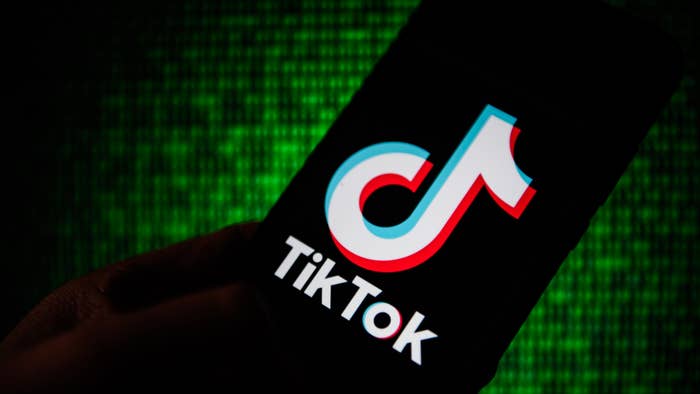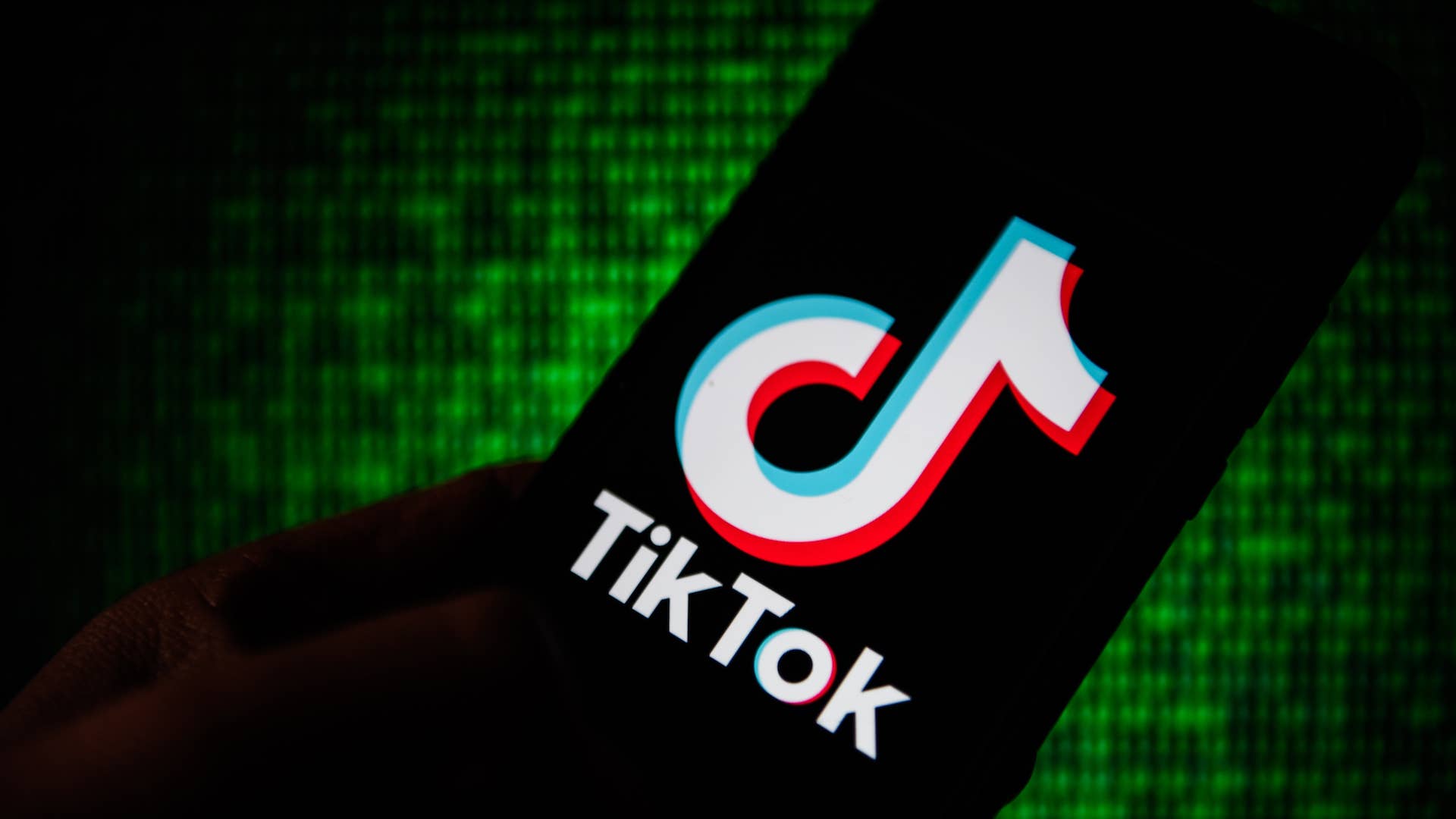
After President Joe Biden told TikTok in March that its Chinese owners had to sell their stakes in it or face a ban, speculation is running rampant that the app’s time may be coming to an end.
The ByteDance-owned video platform is used by over 100 million Americans and blew up during the pandemic. But the Biden administration fears that TikTok has several security risks. The Foreign Affairs Committee of the House of Representatives voted on March 1 to let the rest of Congress decide whether Biden had the power to ban the app.
“TikTok is a national security threat. … It is time to act,” Rep. Michael McCaul of Texas, the Republican chair of the committee who sponsored the bill, said at the time of the vote. “Anyone with TikTok downloaded on their device has given the CCP (Communist Party of China) a backdoor to all their personal information. It’s a spy balloon into their phone.”
Politico reported that Rep. Gregory Meeks of New York, the most powerful Democrat on the committee, expressed skepticism that the bill was properly written, saying, “We cannot act rashly without consideration of the very real soft power, free speech, and economic consequences of a ban.” In the end, lawmakers voted 24 to 16 to grant the administration new powers to ban the application. The 16 “no” votes were all from the committee’s Democrats.
In February, CNN reported that federal agencies had told employees they had 30 days to remove the app from their government-issued devices. TikTok’s CEO Shou Zi Chew, who appeared before Congress in a hearing in March, spoke out on the matter, vowing that the application has never accessed American data.
Each day, the conversation continues to grow around the government attempting to block TikTok. There have been a lot of recent developments concerning the app’s future, and there are still a lot of questions that remain unanswered.
Here’s everything you need to know about the possibility of a TikTok ban.
The Biden administration wants TikTok’s Chinese ownership to sell the app or face a possible ban, TikTok said on Wednesday, as the White House hardens its stance toward resolving national security concerns about the popular video service.
The U.S. government is concerned that the app is associated with the Chinese government, which the U.S. considers a rival for global economic and military dominance, and has the ability to spy on American users and their online behaviors. In turn, there is the question of whether the Chinese government will access this data and use it as propaganda against U.S. government interests.
This isn’t the first time that this concern has been raised. In 2020, the Trump administration threatened to ban the video-based platform if TikTok didn’t sell itself to a U.S.-based company, per CNN. The news outlet explained that the Biden administration revoked “the Trump-era executive order targeting TikTok, but replaced it with a broader directive focused on investigating technology linked to foreign adversaries, including China.”
Last year, a report suggested that user data from the U.S. was accessed several times by China-based employees. TikTok has since denied those claims. “We know we’re among the most scrutinized platforms from a security standpoint, and we aim to remove any doubt about the security of US user data,” representatives for ByteDance, TikTok’s parent company, said. “That’s why we hire experts in their fields, continually work to validate our security standards, and bring in reputable, independent third parties to test our defenses.”
TikTok responded to the US government's potential ban of the app
Earlier this month, TikTok CEO Shou Zi Chew promised to address the government’s security concerns. Chew explained that the Chinese government has never asked permission to access U.S. user data. Chew insisted that “all U.S. user data is stored, by default, in the Oracle Cloud infrastructure” and “access to that data is completely controlled by U.S. personnel.” TikTok spokesperson Maureen Shanahan told CNN that while there are concerns over the app’s ownership, a change wouldn’t affect how user data is acquired.
“If protecting national security is the objective, divestment doesn’t solve the problem,” Shanahan said in a statement. “A change in ownership would not impose any new restrictions on data flows or access. The best way to address concerns about national security is with the transparent, U.S.-based protection of U.S. user data and systems, with robust third-party monitoring, vetting, and verification, which we are already implementing.”
How many people in India cared about the tiktok ban in their country three months later?
In the summer of 2020, Forbes reported that India banned TikTok, immediately affecting the 200 million users that the app had in the country. India users received this message when they attempted to log onto the platform: “Dear users, we are in the process of complying with the Government of India’s directive to block 59 apps.”
The following year, Biden signed a law that prohibits TikTok on federal government devices. A spokesperson for TikTok spoke about the law, expressing concerns of censorship. "The ban of TikTok on federal devices passed in December without any deliberation, and unfortunately that approach has served as a blueprint for other world governments," Brooke Oberwetter said in a statement via CNN. "We hope that when it comes to addressing national security concerns about TikTok beyond government devices, Congress will explore solutions that won't have the effect of censoring the voices of millions of Americans."
Does anyone else worry about how the tiktok ban will impact tiktok creators who have abandoned traditional jobs for content creation and like... increased their lifestyle $$$?
If a ban does happen, it could benefit other companies and some of TikTok’s rivals. TikTok is a standout compared to its competitors, with a 2023 report by the social media analytics firm Rival IQ suggesting that one in about 20 people following a large corporate account engage in some way with the brand’s posts. In comparison, the report found that only one in about 200 people gives corporate accounts some kind of engagement on Instagram.
If the app is banned, creators might have to find a new source of income by trying their hand at platforms like Instagram and Snapchat. CNN explained that many social media platforms have been trying to mimic TikTok’s approach. “Many of the largest U.S. social media companies have spent years copying TikTok’s features, which would make a shift away from the platform easier for its creators and users,” the outlet stated. “Instagram, for example, introduced its own short-form video tool in 2020 called Reels. Snapchat has Spotlight, YouTube has Shorts, and even Spotify has a TikTok-like video feed with recommended music and other content.”
After the hearing today, this is what its come to. #tiktokban #tiktokhearing
At the TikTok congressional hearing, TikTok CEO Shou Zi Chew denied that the app shares data and explained that the platform ensures safety for its 150 million American users, per Reuters. Chew argued that TikTok has been “building what amounts to a firewall to seal off protected U.S. user data from unauthorized foreign access. The bottom line is this: American data stored on American soil, by an American company, overseen by American personnel.”
Elsewhere in the hours-long hearing, lawmakers expressed concern about TikTok’s content. They said the platform encourages eating disorders among children, illegal drug sales, and sexual exploitation. "TikTok could be designed to minimize the harm to kids, but a decision was made to aggressively addict kids in the name of profits," said Rep. Kathy Castor, a Democrat from Florida. Last December, the New York Times reported that TikTok recommends harmful content to 13-year-olds within 30 minutes of joining the platform.
At one point, Rep. Neal Dunn, a Republican from Florida, asked Chew if TikTok plans to monitor the location of certain U.S. citizens when using the application and continued to inquire about spyware. In response, Chew said, "I don't think that spying is the right way to describe it.” This isn’t the first time that an app has been accused of spying on users. In 2011, the New York Times detailed the use of tracking software in iPhones.
Currently, it’s unclear what the next move will be after the testimonies at the hearing.
TikTok announced they're introducing a 60-minute auto screen-time limit for users under 18. The move follows growing concerns over the safety of children on the platform, with 67% of American teenagers using the app.
In an effort to control the amount of screen time users between the ages of 13 and 18 are spending on the app, TikTok has announced a 60-minute limit feature. Once users between these ages reach the hour mark, they will be prompted to “enter a self-set passcode to unlock extra time,” according to Gizmodo. The passcode must be set by a parent or guardian for users under 13. The feature is expected to roll out in the coming weeks.

